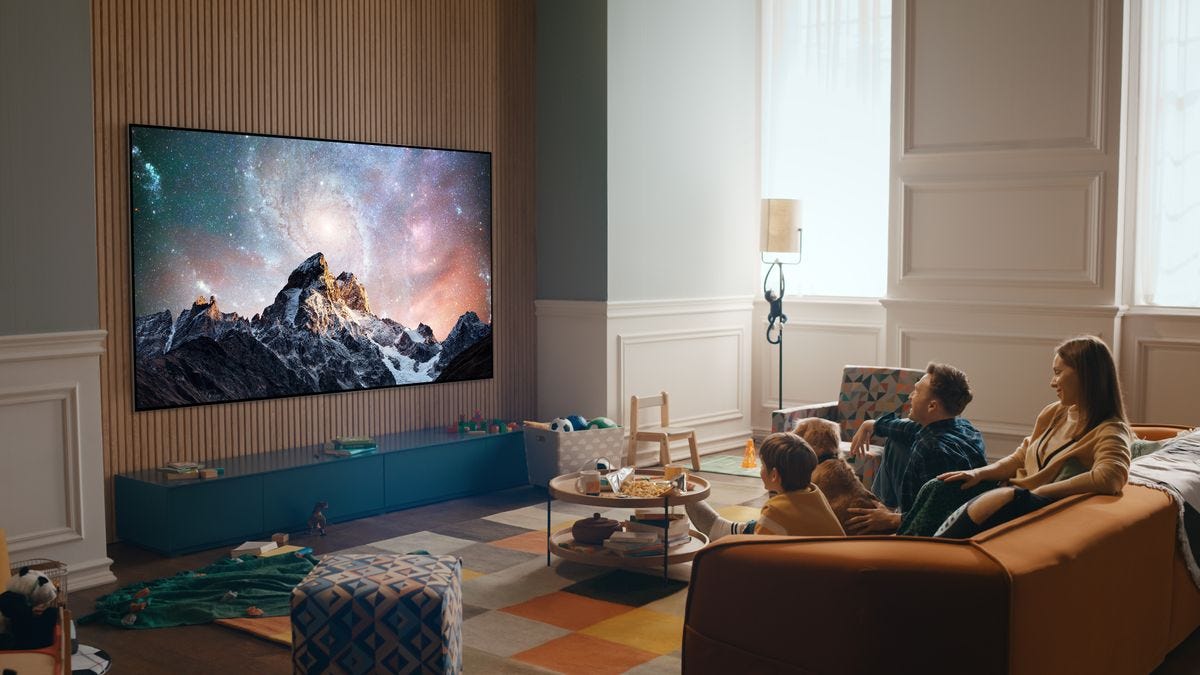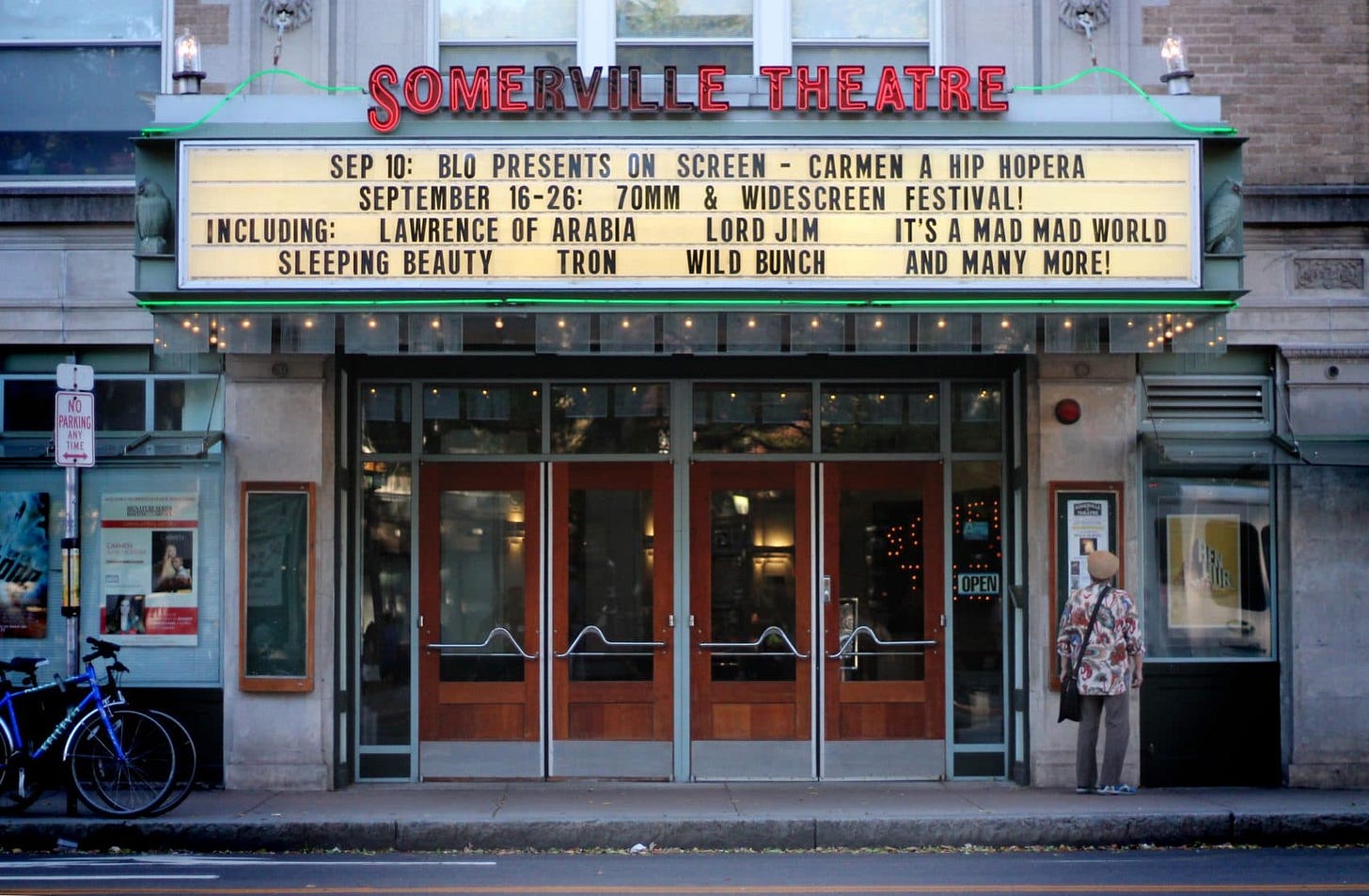The Box Office Crisis: How Studios and Streaming Are Undermining Movie Theaters
Movie theaters once thrived on exclusivity, but now Hollywood is prioritizing subscriptions over the big screen experience and shifting audiences to home viewing.
Movie ticket sales are down, and while box office revenue might still look solid, the actual number of tickets sold tells a different story. Fewer people are going to the movies now than in the 80s, 90s, or even pre-COVID times. For instance, in 2002, the average American went to the movies around five times a year. By 2019, that number had dropped to about three and a half. As of 2024, that number dropped below two. Theaters are clearly struggling to attract audiences, and there are several reasons why.
Like Sean Baker said in his brilliant Oscar acceptance speech, I believe in the theater experience. I believe in the shared energy of a packed crowd, the giant screen, the sound, and the exclusive experience of a theatrical release. It’s an event, and we need that back. But for a variety of reasons, both within and outside the control of theaters, that experience is getting harder to maintain.
Problems Theaters Can’t Control
The biggest issue hurting the theaters is all due to shifts during COVID that still haven’t reversed. Before COVID, movies would stay exclusively in theaters for months, typically 90 days, before you could rent or buy them at home. It could take a year or more before they hit a streaming service like Hulu, Netflix, or Prime Video in the days before studio-run streaming services.
Now? The average theatrical window is down to about 30-40 days. Some slower months, like January, have seen windows dip as low as just three weeks, meaning that some movies are available at home within a month of their release. Studios also have their own platforms, so licensing deals don’t need to happen, which would slow down the process of getting a movie on streaming. Paramount movies go straight to Paramount+, Disney movies land on Disney+, Warner Bros. movies hit Max, and so on. Studios want subscription dollars, not ticket sales, and they’re shifting their business model accordingly.
The home theater experience has also improved dramatically. In 2015, I had a 55” HDTV and thought I was living large. Now, just ten years later, I have an 85” 4K TV in my living room, and it is a fairly common size for many consumers. 4K Blu-rays look incredible. Sound systems have improved. Theaters now have real competition from home setups, so they need to offer something special. The big chains offer IMAX, Dolby Theaters, 4DX, and other premium formats to draw audiences in. Sometimes that works, but with shrunken windows, people figure they’ll just wait a couple of weeks and watch at home, especially if they have invested thousands of dollars in their own setups.

Beyond that, people simply don’t value the theater experience like they used to. Etiquette is at an all-time low, at least in my experience. Phones are constantly out. People are taking photos and videos. People talk through the movie. They show up late. They don’t respect the experience. This is why I prefer indie theaters and smaller chains, which attract audiences who actually care. The big theater chains, on the other hand, often feel like a free-for-all. I hate to gatekeep those indie theaters, because that only hurts their business, but it feels like having them as these “hidden gems” is the only way to see a movie in a way I appreciate it.
What Theaters Can Do to Fight Back
So yes, there are a lot of headwinds against movie theaters right now. But some of this is in their control, and they can fight back. They can enforce etiquette, and bring back ushers who will kick out disruptive guests. They can also hire (or re-hire, since so many were let go) projectionists and technical experts to ensure the best picture and sound quality. Too many times, I’ve gone to a big chain theater and had a terrible technical experience. There are dim projectors, blown-out speakers, bad framing, and odd color filters, because nobody there knows how to fix it. Theaters used to have dedicated projectionists who took pride in their work, but now it’s just teenagers running the place, scanning tickets, and cleaning up popcorn. It’s not their fault; it’s the chains cutting corners.
Theaters also need to stand up to the big studios. They rolled over during COVID because they had no choice, but now they need to push back. They should demand longer theatrical windows, prioritize studios that actually support theatrical releases, and stop looking at streaming as an inevitability. A24 offers a monthly membership where members now get a free ticket to every one of their releases. NEON supports indie film and always pushes hard for theatrical viewing in their marketing. There are major players like this who would be more than happy to have their movies take over the theater screens over the big Hollywood players.
Theaters should also diversify their programming by hosting repertory screenings, bringing in classic films and creating community events like themed festivals and special events. These types of events expand the movie theater experience beyond just a screening and extend into the local community in a way that the day-to-day theater operations do not.

And finally, they need to rethink pricing. Ticket prices are high. Concessions are ridiculous. When I already need to pay a babysitter $100 to get out to see a movie, I should be able to get two tickets and some popcorn for a reasonable price. But the studios take a massive cut of ticket sales, so theaters don’t have much wiggle room. That said, they still have negotiating power. If theaters band together, they can force studios to give them better terms. Box office sales still have a huge impact on the studios’ bottom line, and if theaters boycott certain films and push for better terms, I do believe they can make a change. If they do that, they can lower prices and make the theater experience more appealing to the average person again, which is an area I think it is hurting the most.
The Magic of the Theater Experience
At the end of the day, nothing compares to watching a movie in a theater. Seeing a film with a packed audience on opening night is magical. Feeling the collective reaction, the laughs, the screams, and the gasps can completely change how a movie plays. A slow, quiet movie that might seem dull at home can feel electrifying in a dark theater with the right audience. Most movies just aren’t meant to be watched at 3 PM on a Saturday afternoon in your living room, or worse, on a tablet or phone in your bed. Movies are meant to be communal experiences, and too often I hear people talk about movies in a negative light that I know would have been a more positive experience in the right environment.

It’s like going to a concert instead of streaming music at home. Seeing a painting in a museum versus scrolling past it on your phone. Watching a play in a theater instead of a recording. Look, I love that Hamilton is on Disney+. It is super cool to have that option and share the art with the masses. But I know nothing will ever compare to having been there with the original cast on Broadway. Art is meant to be shared. And movies are losing that.
So go to your local theater. Find indie cinemas that care about the experience. Seek out the ones that show classic films, foreign films, or unique programming. Just go to the movies, put your phone away, and enjoy the experience. We all love it, and we won’t realize what we’ve lost until it’s too late.




Hi Jeff, I love this article you wrote (showing statistics) and throwing my two cents in and it mostly confirms what you are expressing. Audiences are also being conditioned to go to streaming by the shorter theatrical time frames of when it is in theatres to streaming. So consumers are getting use to not seeing a movie. In days past, could have time to catch a movie now much less time so then fall into "ok will watching on streaming". The intent is obvious for me, the studio leaders want to wean people away from movies. Also the quality of movies overall being thrown up on theatrical screens might have some think "I can watch this at home".
Will streaming eventually take out movie theaters? Who knows seems likely. As people have watched more streaming movies and TV, there is less differentiation for the public between the two mediums: big screen and made for TV/streaming.
Which pushes even more to "just watch on streaming". In years past there was a remarkable difference between big screen movies and TV movies (overall vibe and quality). Yeah, there were exceptions that popped up, but overall, the big-screen theater movies compared to TV movies were different, namely due to budget, time, and efforts spent on the different genres. Now a sentiment that exists is "can just watch this movie at home and enjoy it just as much". Less distinction in movies due to studios production, namely quality.
This is your best article yet, and it resonates with me as a teenager that worked about one of those theatres PACKED for Titanic, Spy Kids and Harry Potter. It was a magical experience then and can be again.
But I hear the complaints, I can almost never find anyone that wants to go with me to see a movie, and I often end up going alone, like I did for Nosferatu. It’s not the end of the world, but people need that film loving community as well and it seems most just done care anymore.